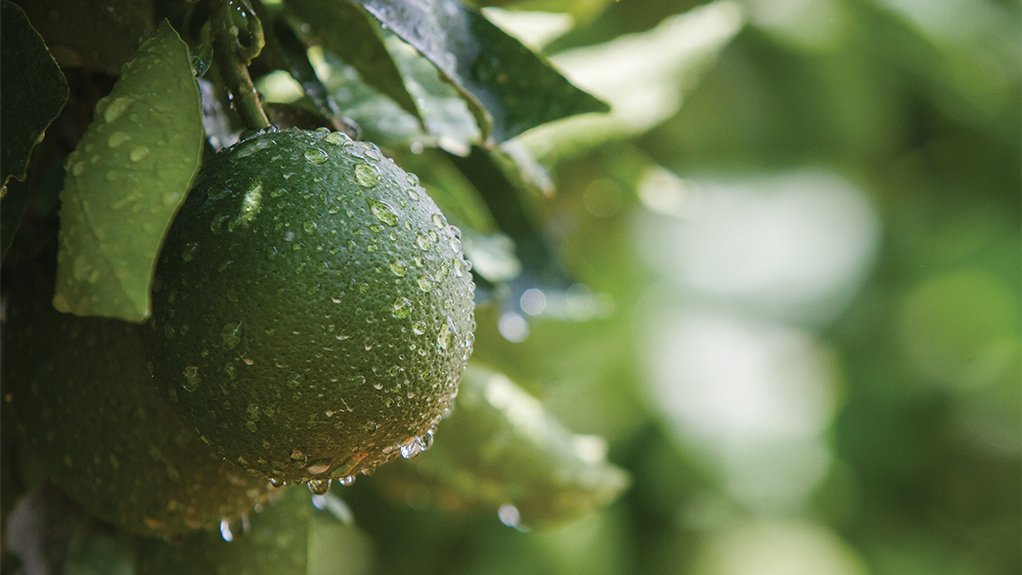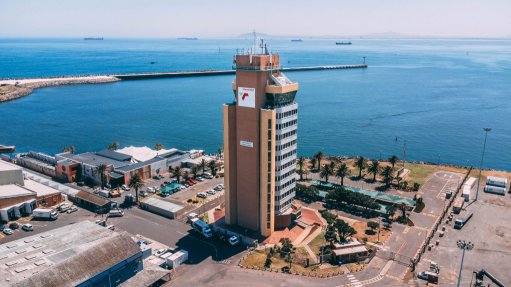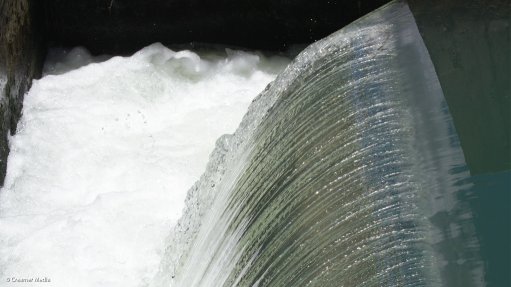Trump tariffs sour the fortunes of South Africa’s citrus farmers
Walk down the aisles of a Trader Joe’s or Whole Foods Market in the US, and chances are many of the piles of oranges, lemons, limes and grapefruit will be labelled “Produce of South Africa.”
They have become a staple in the US — the world’s largest citrus importer — especially during the off-season summer months when in the southern hemisphere the South African winter harvest is at its peak. But now, those supplies are threatened by a potential 31% tariff that President Donald Trump has said will go into effect on July 9, adding that he won’t consider delaying the deadline.
The looming levy has cast a cloud over the sunny valleys of Citrusdal, a tiny, serene farming town nestled amid rolling green hillocks in the Western Cape area of South Africa. Tucked into the base of the Cederberg mountains about 100 miles north of Cape Town, the area is dominated by citrus farms, giving the town its name. For a quarter century, the juicy produce of the area’s orchards — owned over generations by people mostly of Afrikaner heritage — has journeyed thousands of miles to make it to the fruit bowls of American homes.
But this season is different. Now, Trump’s tariff policies are threatening the very same White farmers to whom he offered asylum, falsely claiming that they are targets of a genocide and that their land is being seized by the state. The levies are likely to have a debilitating impact on their operations, the livelihoods of the thousands of people they employ and the country’s R35-billion citrus industry — one of the rare bright spots in South Africa’s stagnant economy.
“Our business is built for the US market, and for about 25 years we’ve planted, we’ve picked, we’ve planned accordingly,” said Gerrit van der Merwe, the chief executive officer of family owned ALG Estates, as he stood in his 2,500-acre farm donning a gray puffer jacket, jeans and a pair of Veldskoen — leather footwear made famous by Afrikaner farmers.
South Africa is the world’s second-largest exporter of citrus fruits, behind Spain. Trump’s tariffs are now threatening to price farmers in the Western Cape — the country’s prime area for the produce — out of a key market, leaving them to navigate an uncertain future.
Citrus growers have been preparing for a new reality. Over recent weeks, some orchards have been in a panicked rush to get their produce to the US market ahead of the looming deadline. Van der Merwe’s farm, whose packing season began May 1, has been working on getting as much fruit as possible on vessels and shipped, he said.
But longer term, the damages could be more devastating and may push farmers to shrink orchards that are specifically developed to meet demand in the US, said Van der Merwe, whose farms employ 2 000 people and have been managed by his family for eight generations.
“We’ve built our supply chains, we’ve built our supermarkets, we’ve built our importing companies on that side, so we’ve been trying to own that market to make sure that we are very, very efficient, and that we can send the maximum fruit into that market,” he said. “For us, we’ve become dependent on the US market, but also the US consumers have also become dependent on our fruit.”
The US is the second-largest destination for South African exports after China, accounting for more than $20-billion last year. Major exports include precious stones and metals, organic chemicals and edible fruit. Although the nation sends just 5% to 6% of its citrus produce to the US, the exports had been expected to rise about 7.7% to 7-million cartons this season, and the industry had ambitious plans to grow that share.
The US duties will be the latest blow to the industry that employs about 140 000 people at the farm level. A rare South African export success, it has been threatened by the crumbling domestic infrastructure at state-owned rail and ports operator Transnet, that has been blamed for delays and dwindling shipments of key commodities.
Should the higher tariff “take effect, it would make our citrus completely uncompetitive in the US market,” said Boitshoko Ntshabele, CEO of the Citrus Growers’ Association. The CGA estimates that logistical inefficiencies already cost the sector R5.3-billion a year.
South Africa is among countries slapped with the steepest tariffs, placing it at an immediate disadvantage while competing with its citrus producing South American rivals, like Peru and Chile.
To mitigate the impacts of the tariffs, growers may opt to reroute their fruit to other markets, including Europe, but that could undermine the stability in those markets and have “a knock-on effect on the entire Southern African citrus industry,” Ntshabele warned.
The sector is “looking to add about 100-million export cartons by 2032, and therefore continuously working on diversifying exports markets,” he said. “This will remain our focus in the near term.”
Europe is already among the biggest citrus export markets for South Africa. The industry is also locked in a long-running dispute over the European Union’s regulations, which mandated stringent cold-treatment measures and additional inspections of South African citrus following cases of fruits affected by the false codling moth. The moth lays eggs on the surface of the fruit, and the larvae that emerge from the eggs burrow into the rind, develop brown discolouration and render the fruit mouldy and unmarketable. The CGA says EU regulations cost the industry about R3.7-billion each season.
As farmers look to widen their export markets, they could turn to China and other Asian countries, said Paul Makube, a senior agricultural economist at First National Bank. China’s recent announcement of a plan to grant 53 African nations tariff-free access presents an opportunity for citrus farmers to expand there.
“It has become increasingly important to start diversifying, and with the Asian markets with their big populations and income growth in China, India, they need to start opening up those Asian markets,” Makube said.
That said, growing the industry’s presence in the world’s top market for the fruits remains critical. South African President Cyril Ramaphosa sought to reset strained relations with the US during an Oval Office meeting with Trump in Washington in May. South Africa is asking the US to drop its reciprocal tariff to the 10% baseline.
“We believe that if we have a live conversation going, we will be excluded from the 30%, maybe sitting with the 10%,” said Agriculture Minister John Steenhuisen. “That still allows us to compete against some of our competitors, particularly in the South American market.”
There are no signs that will happen, and at ALG Estates, Van der Merwe is worried.
“I think 10% is manageable; it’s not ideal,” he said. “For now, we’re asking to be handled the same as Peru and Chile — our competition. Otherwise, we can’t compete.”
Article Enquiry
Email Article
Save Article
Feedback
To advertise email advertising@creamermedia.co.za or click here
Announcements
What's On
Subscribe to improve your user experience...
Option 1 (equivalent of R125 a month):
Receive a weekly copy of Creamer Media's Engineering News & Mining Weekly magazine
(print copy for those in South Africa and e-magazine for those outside of South Africa)
Receive daily email newsletters
Access to full search results
Access archive of magazine back copies
Access to Projects in Progress
Access to ONE Research Report of your choice in PDF format
Option 2 (equivalent of R375 a month):
All benefits from Option 1
PLUS
Access to Creamer Media's Research Channel Africa for ALL Research Reports, in PDF format, on various industrial and mining sectors
including Electricity; Water; Energy Transition; Hydrogen; Roads, Rail and Ports; Coal; Gold; Platinum; Battery Metals; etc.
Already a subscriber?
Forgotten your password?
Receive weekly copy of Creamer Media's Engineering News & Mining Weekly magazine (print copy for those in South Africa and e-magazine for those outside of South Africa)
➕
Recieve daily email newsletters
➕
Access to full search results
➕
Access archive of magazine back copies
➕
Access to Projects in Progress
➕
Access to ONE Research Report of your choice in PDF format
RESEARCH CHANNEL AFRICA
R4500 (equivalent of R375 a month)
SUBSCRIBEAll benefits from Option 1
➕
Access to Creamer Media's Research Channel Africa for ALL Research Reports on various industrial and mining sectors, in PDF format, including on:
Electricity
➕
Water
➕
Energy Transition
➕
Hydrogen
➕
Roads, Rail and Ports
➕
Coal
➕
Gold
➕
Platinum
➕
Battery Metals
➕
etc.
Receive all benefits from Option 1 or Option 2 delivered to numerous people at your company
➕
Multiple User names and Passwords for simultaneous log-ins
➕
Intranet integration access to all in your organisation




















